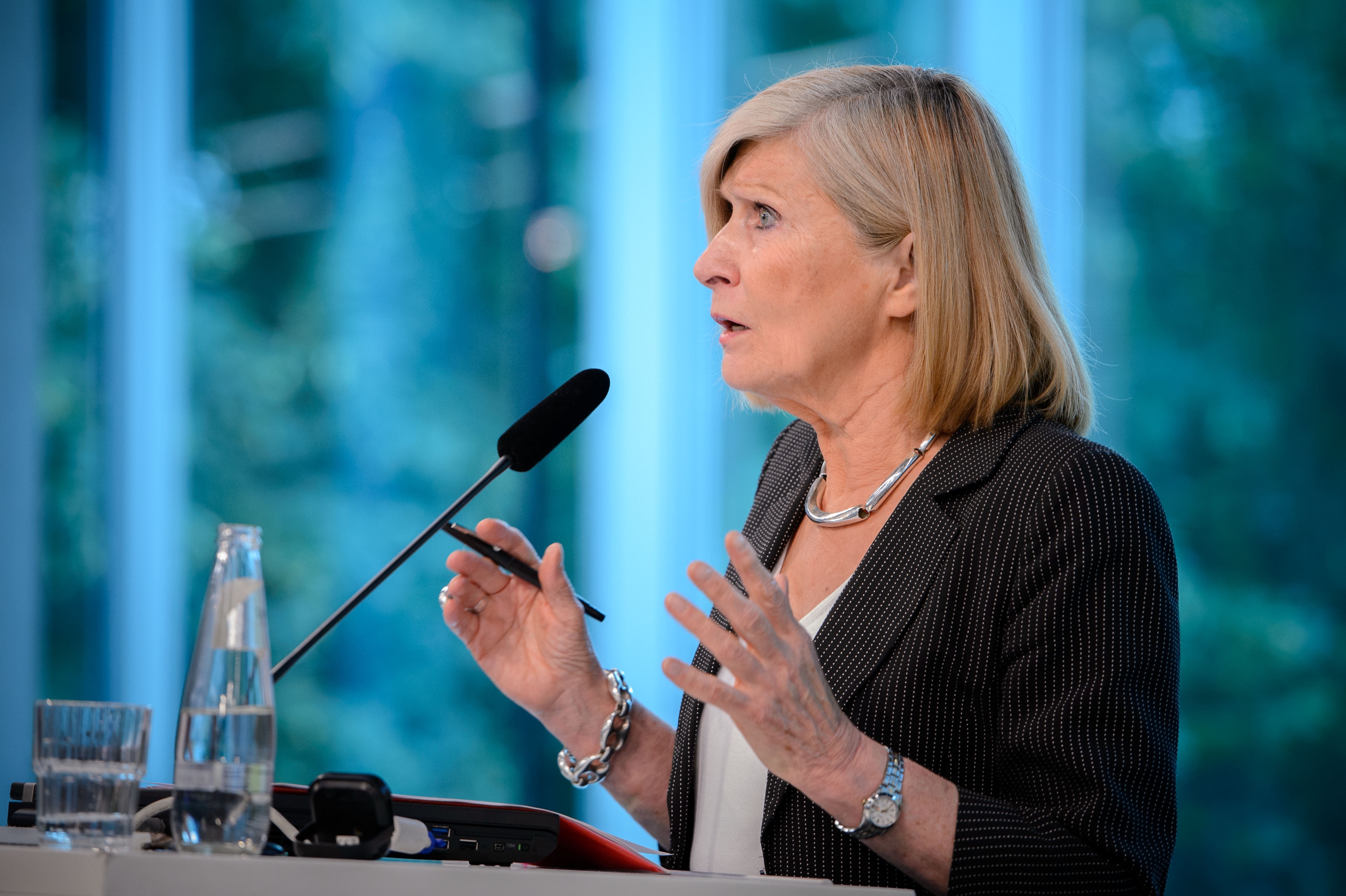 |
| Foto Chantal Mouffe |
This study has three main objectives. First, to explain what democracy, liberalism and liberal democracy are. Second, to analyze and explain the paradox of liberal democracy according to Chantal Mouffe. Third, to describe a number of responses and criticisms of Chantal Mouffe's view of the paradox of liberal democracy.
The method
used in this study is a secondary data analysis method. The author tries to
find, read, and analyze books, journals, news, and other writings related to
this theme, both written by Chantal Mouffe himself and by other writers as far
as the themes are concerned.
Based on the
results of the study concluded that liberal democracy which is an articulation
of the tradition of democracy and liberalism has a number of insurmountable
paradoxes. From the democratic tradition there are principles such as equality,
popular sovereignty, and identity between governing and governed. From the
tradition of liberalism there are principles such as the rule of law, the
defence of human rights, and respect of individual freedom/liberty. Of these
principles, the most fundamental paradox lies in the principle of freedom/liberty
which is a legacy of liberalism and equality which is a legacy of democracy.
The paradox between these two principles cannot be overcome and becomes the
driving spirit of historical political development.
Besides the
paradox above, another paradox of liberal democracy according to Chantal Mouffe
is related to the logic of inclusion and exclusion. Democracy always draws a
frontier between those who are demos
and those who are not. Between demos
and non demos cannot be prosecuted
and the same obligations and rights are imposed. The only people who can claim
the same rights and obligations are those who fall into the demos category, which are limited by the
concept of the nation-state. The problem actually arises when this principle is
connected with the principle of liberal equality which is universal and is not
limited by the concept of the nation-state. Liberal equality is the equality of
all humanity. The basis lies in the main idea of liberalism, which is
universal humanity. While the main idea of democracy is citizens (demos).
From the two
constitutive paradoxes above, the next paradox emerges, namely the paradoxical
praxis of political history. The historical paradox of political praxis deals
with the logical consequences of the constitutive framework of liberal
democracy and the actual manifestation of it as political praxis. This paradox
is seen in the increasingly strong hegemony of neoliberalism and global
capitalism. In the author's analysis, in Indonesia, this is evident in the
strengthening of oligarchies in the national and local political arena. Mouffe
also found the same problem in Latin America and Western Europe.
In Mouffe's
analysis, the strengthening of oligarchies and global capitalism occurs because
people no longer think about finding possible alternatives to the existing
hegemonic order. What fosters this way of thinking for Mouffe is the bearers of
the third way (Ulrich Beck and Anthony Giddens) and consensus democracy (Rawls
and Habermas). For them, democracy is a consensus production machine. Anyone
who rejects consensus in a democracy is labeled as an ancient and enemy of
civilization. As a result, politics loses its agonistic and conflictual
dimensions. The political adversarial dimension disappears as the imaginary
boundaries of politics (left and right) disappear. The agonistic debate between
friend and adversary has disappeared. Politics is reduced to mere technical
issues; something that is the domain of experts.
As an
alternative to the existing hegemonic order, Mouffe advocates an agonistic
democratic model. This model emphasizes the principle of radical discourse.
This model is distinguished from radical democracy. Radical democracy is a
political project. While agonistic democracy is an analytic theory. One of the
projects defended in the theory of agonistic democracy is a radical democracy
project that emphasizes the radicalization of the implementation of the
principles of freedom and equality. However, Mouffe took this position not as a
theorist, but as a citizen involved (political project). However, when he talks
about agonistic democracy, he speaks as a political theorist (analytic theory).
Mouffe's view
of agonistic democracy has aroused much serious debate among political thinkers
in various parts of the world in the last few decades. Despite having enough
supporters, Mouffe also did not escape criticism. In the author's analysis,
there are a number of fundamental weaknesses in Mouffe's theory. Mouffe for
example claims political liberation from the register of morality, but in its
theoretical construction, Mouffe implicitly makes moral claims in politics. In
addition, Mouffe who rejects consensus democracy and replaces it with a
consensus democracy actually bases his disensus theory on consensus on the
basic ethical values of politics: freedom and equality for all.
On the other
hand, Tamara Caraus explores the cosmopolitan potential in Mouffe's view based
on four aspects of its agonism, namely: the fact of pluralization, the
conversion of “enemies” to “adversaries”, conflictual consensus, and
contestation practices. In a number of aspects of this agonism, it seems that
Mouffe's theory undermines its initial anti-cosmopolitan claims.
Even though its opponents have
been criticized from various sides, according to the author, Mouffe's theory
remains relevant for contemporary democratic discourse characterized by
mainstreaming the consensus democracy model. The concept of agonistic democracy
exists as a counterweight in charge of counteracting the bad excesses of consensus
democratic hegemony for the development of national and global politics.
Therefore, the authors see the need to further develop studies on this Chantal
Mouffe thinking. If in this paper the research is more of a purely theoretical
analysis, other researchers are expected to explore deeper the relevance of
Chantal Mouffe's thought to the development of global and national politics
today.
Key words:
Democracy, Liberalism, Liberal Democracy, Liberal Democracy Paradox, Agonistic
Democracy
The Paradox of Liberal Democracy According to Chantal Mouffe: Analytical and Critical Study
![The Paradox of Liberal Democracy According to Chantal Mouffe: Analytical and Critical Study]() Reviewed by insancerdaspolitik
on
April 28, 2020
Rating:
Reviewed by insancerdaspolitik
on
April 28, 2020
Rating:





No comments: